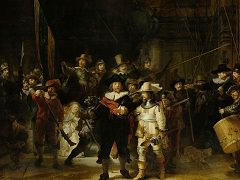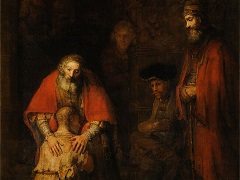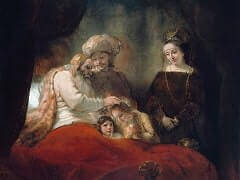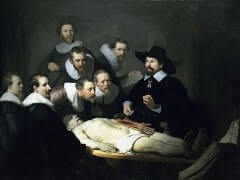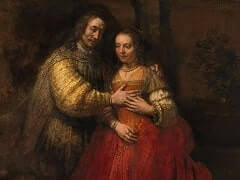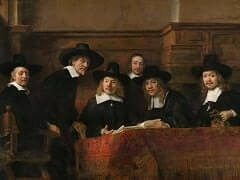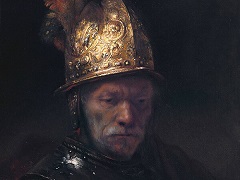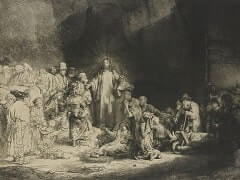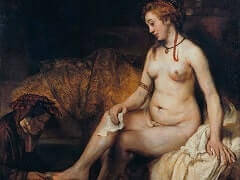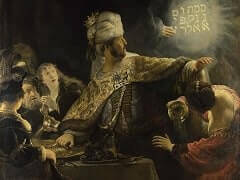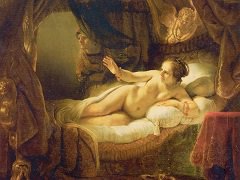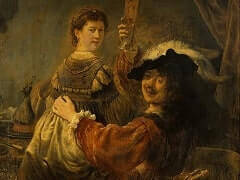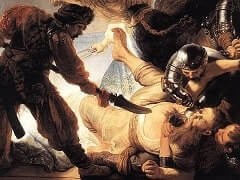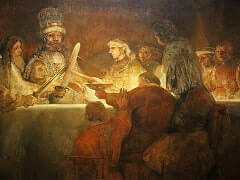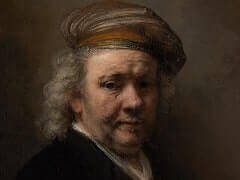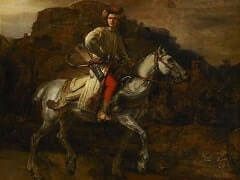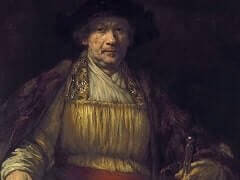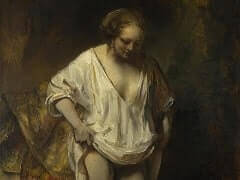Joseph Telling his Dreams, 1638 by Rembrandt
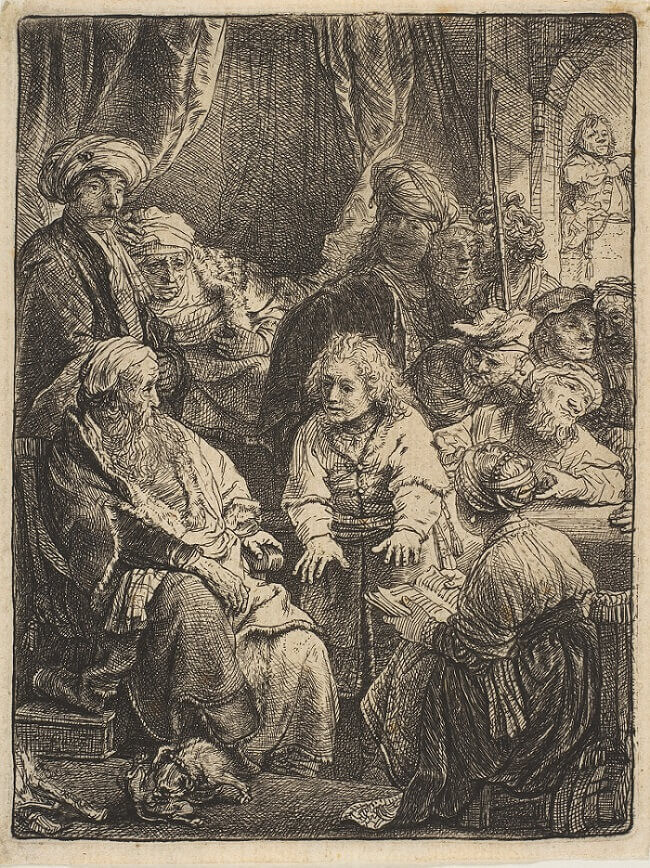
Joseph Telling his Dreams depict the young Joseph ardently addressing his father and other members of his family who react with astonishment to his revelation that he dreamed that 'the sun and moon and eleven stars made obeisance to me'. Jacob sits opposite Joseph in a patriarchal pose, wearing an expression of incredulity: 'what is this dream that thou hast dreamed? Shall I and thy mother and thy brethren indeed come to bow down ourselves to thee to the earth?' His chagrin is echoed by his family, one of whom, above Joseph, wears a turban and moustache and stares directly - and knowingly - out at the viewer, seemingly already plotting his brother's downfall.
Sold into slavery in Egypt by his brothers, Joseph is eventually imprisoned and falsely accused of attempting to rape Potiphar's wife - as will be seen, another favourite subject of Rembrandt's. There he interprets the dreams of Pharaoh's butler and baker. Whereas the butler's dream reveals that he will be released from prison in three days and reinstated in his position, that of the baker reveals that he will be hanged.


